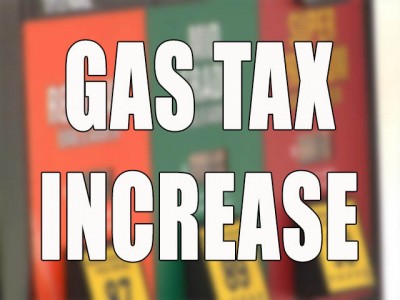
The state taxes that folks in Habersham County pay on a gallon of gas will likely increase as the Georgia House and Senate attempt to raise a billion dollars to build and maintain roads and bridges with House Bill 170.
Figuring out just how much we actually pay in state taxes per gallon of gas is not easy because it’s mostly collected from distributors and then folded into the final price we pay at the pump.
Currently, on average, about 19 cents of the per-gallon price in Georgia is due to a combination of the state’s excise tax and sales tax on gasoline. You also pay an additional local sales tax of 2% in Habersham County. All of that is wrapped up in the $2.08 price-per-gallon (lowest price in Cornelia on Saturday) so you’ll never see the actual tax burden on your receipt.
Both the house and senate versions of HB 170 would combine the mix of excise and sales taxes into a single excise tax. The house wants that to be 29.2 cents per gallon while the senate set the rate at 24 cents per gallon. With either plan, the state taxes you pay on gasoline would rise.
For the county government and Habersham County School System, the house version of HB 170 will eventually mean they could no longer get their penny SPLOST revenue from fuel sales. Once the current local sales taxes expire, the house version allows the local sales tax to go up from 1% to 1.25%. If voters can be convinced to approve the higher SPLOST rate, local governments would not lose any revenue with the change.
The senate version pretty much leaves the local taxes alone.
Local lawmakers have mixed feelings about the plan. Habersham County Rep. Dan Gasaway (R) had suggested raising taxes on cigarettes to offset the impact of HB 170 on local governments. That plan was a non-starter in the house.
Sen. John Wilkinson (R) says they have to raise the money one way or the other. “As our state continues to grow the maintenance and updating of our transportation system is of the upmost importance. Our challenge is to generate funding for transportation improvements in the most fiscally responsible way. I am confident we can come up with a plan that moves our state ahead without placing any undue burdens on our citizens.”
While the two chambers will now have to compromise on the final version of HB 170, the bottom line for those of us who drive is a higher tax burden at the pump.






